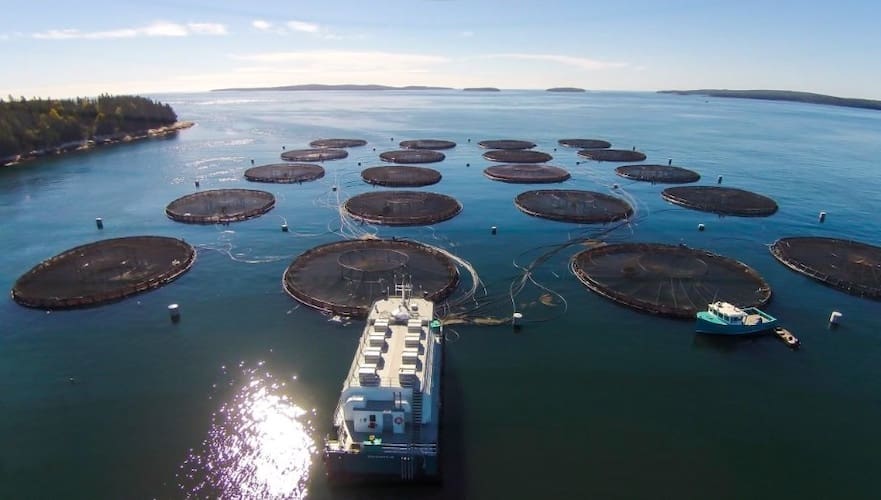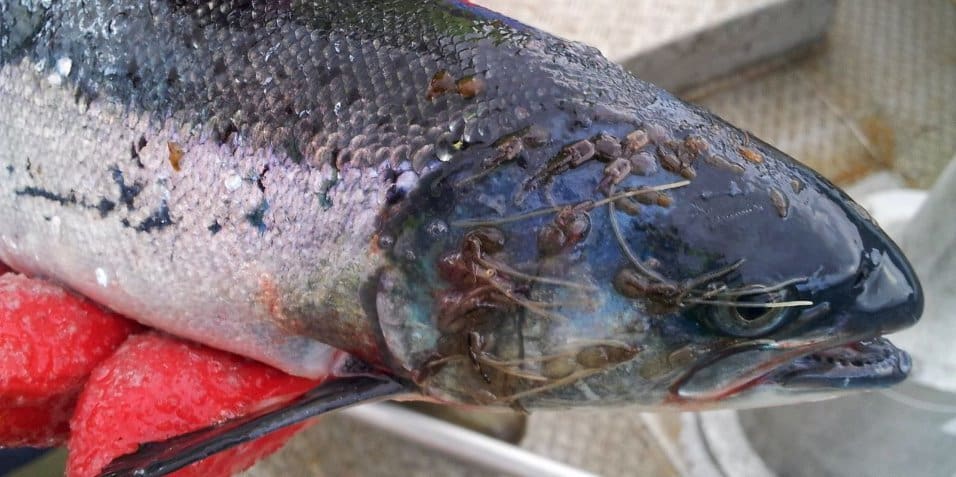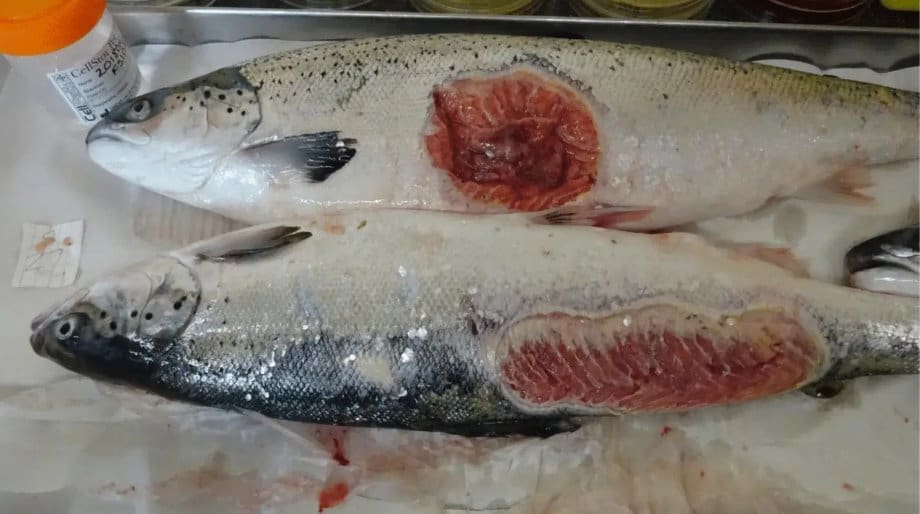
Open-ocean aquaculture wreaks unintended consequences on the health of our ocean ecosystem. Photo: Shutterstock
Good question! There are a lot of different types of aquaculture taking place in New England, but one of the most common is actually not sustainable at all: industrial, open-ocean, finfish aquaculture. On the surface, this type of aquaculture might seem like an efficient alternative to traditional commercial fishing. Unfortunately, in practice, these industrial fish farms cause tremendous damage to New England’s environment in a host of ways.
Finfish farming involves raising thousands of fish with fins, like salmon, in a relatively small, netted area in the ocean near the shore. It’s an unnatural situation with unnatural consequences. Specifically, all the concentrated waste those thousands of fish produce creates a toxic sludge. And that noxious goo smothers the sea floor, killing off a formerly vibrant ecosystem.
One big problem with fish poop is that it contains a lot of nitrogen, which can fuel toxic algae outbreaks. These outbreaks poison turtles, shellfish, and fish outside the farms. In particularly severe cases, these outbreaks can cause large-scale “die-offs” among the farmed fish. The algae can also cloud the water, cutting off underwater plants from the sunlight they need to survive.
The fish grown in these nets also escape pretty frequently. Just last year, around 50,000 salmon staged a jailbreak in Maine waters. These fish likely competed with the local population of wild Atlantic salmon for food, putting this critically endangered species at even greater risk.
Escaped fish that mingle with wild fish populations can also spread diseases that run rampant in the cramped aquaculture nets. Some farms have attempted to address diseases by treating the fish with antibiotics, chemicals, and pesticides, but these carry their own risks.

This is just a sampling of the dangers of industrial, open-ocean, finfish aquaculture. These poorly regulated farms also damage important fish habitats, risk entangling other sea life in their nets, and consume lots of smaller fish to keep the farmed fish fed.

So, what’s CLF doing about it? We’ve filed a lawsuit against Cooke Aquaculture for violating the Clean Water Act in the Gulf of Maine. Cooke Aquaculture is one of the largest aquaculture companies in the world, and some of its industrial fish farms have been fouling the waters of New England for years. We are determined to hold the company accountable and protect the Gulf of Maine from further harm.
Clare Soria is an associate attorney at CLF.



